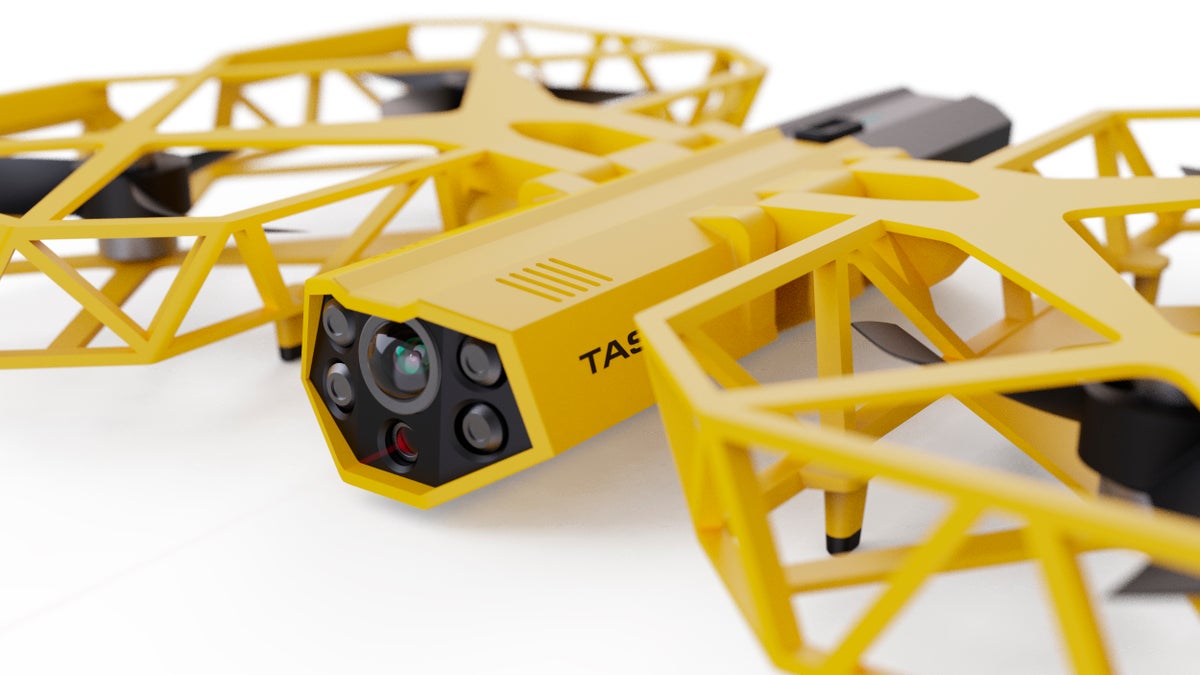
Axon, the company best known for developing the Taser, said Monday it was halting plans to develop a Taser-equipped drone after a majority of its ethics board resigned over the controversial project.
Axon’s founder and CEO Rick Smith said the company’s announcement last week — which drew a rebuke from its artificial intelligence ethics board — was intended to “initiate a conversation on this as a potential solution." Smith said the ensuing discussion “provided us with a deeper appreciation of the complex and important considerations” around the issue.
As a result, “we are pausing work on this project and refocusing to further engage with key constituencies to fully explore the best path forward," he said. The development was first reported by Reuters.
The board had voted 8-4 a few weeks ago to recommend Axon not proceed with a pilot of the Taser drone and had concerns about introducing weaponizing drones in over-policed communities of color.
But after the mass shooting at an Uvalde, Texas elementary school, the company announced it was beginning development of the drone. Smith told The Associated Press last week he made the idea public in part because he was “catastrophically disappointed” in the response by police who didn’t move in to kill the suspect for more than an hour.
The board issued a rare public rebuke of the project, saying it was a dangerous idea that went far beyond the initial proposal the board had reviewed for a Taser-equipped police drone. It said it had “pleaded with the company to pull back” before the announcement and that many of them believed it was “trading on the tragedy of the Uvalde and Buffalo shootings.”
Smith had rejected that idea in an interview with the AP last week and said he was pressing ahead because he believed the Taser drone could be a viable solution to save lives. He contended the idea needed to be shared as part of the public conversation about school safety and effective ways for police to safely confront attackers.
On Monday, nine members of the ethics board, a group of well-respected experts in technology, policing and privacy, announced resignations, saying they had “lost faith in Axon’s ability to be a responsible partner.”
“We wish it had not come to this,” the statement said. “Each of us joined this Board in the belief that we could influence the direction of the company in ways that would help to mitigate the harms that policing technology can sow and better capture any benefits.”
“We tried from the start to get Axon to understand that its customer has to be the community that a policing agency serves, not the policing agency itself,” one of the board’s members, Barry Friedman, a New York University law professor, said in an interview. “It has been a painful struggle to try to change the calculus there.”
Friedman said a major concern was Smith’s decision to move forward with the plan and announce it publicly without adequately hearing the concerns of the board members.
“What’s the emergency? School shootings are a crisis. I agree,” Friedman said. “But Axon, on its own best timeline, isn’t going to come up with anything for a couple of years. Why was it necessary to jump ahead like this?”
“What Rick is suggesting is a necessary public dialogue was really just jumping over the head of the board,” Friedman said.
In his statement, Smith said it was “unfortunate that some members of Axon’s ethics advisory panel have chosen to withdraw from directly engaging on these issues before we heard or had a chance to address their technical questions.”
“We respect their choice and will continue to seek diverse perspectives to challenge our thinking and help guide other technology options,” Smith said.







